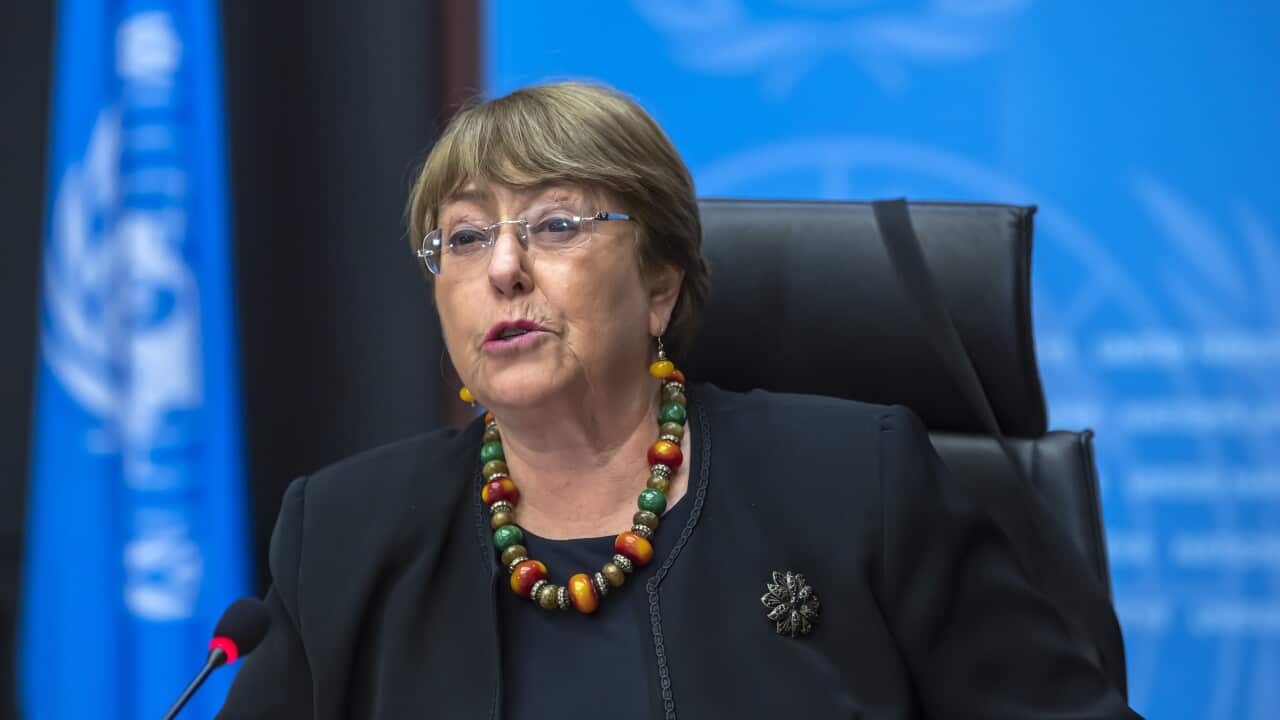Members of the Uyghur community in Australia are in a state of panic, searching a trove of newly leaked images and documents for information about their missing loved ones, who they fear have been locked up in China’s detention camps.

Thousands of images of Uyghurs held in detention in China have been made public.
Mehmet Obul spent Tuesday night sifting through thousands of leaked images of Uyghur detainees who have been locked up by Chinese authorities.
He was both afraid and nervous that he might catch a glimpse of his sisters or nephews, who he hasn’t heard from since 2016.
“We are in a very low mood and emotional right now,” Mr Obul, president of the Australian Uyghur Association, said.

The CCP has been accused of detaining more than one million Uyghurs, Kazakhs and other minority groups without trial in highly-surveilled detention centres because of their Islamic faith.
It is understood police servers were hacked to reveal 452 spreadsheets outlining details of more than 20,000 Uyghurs.
But Mr Obul says the leaked documents reveal “just the tip of the iceberg” of the magnitude of the issue, and fears there are more people affected than the documents indicate.
Uyghurs are a minority ethnic Muslim group, primarily from the Xinjiang province in China’s northwest.

China has long denied the alleged human rights abuses, insisting that Uyghurs were willingly enrolled in “vocational and education centres” to free themselves of “extreme views”.
Others have been sentenced to years in prison for charges that include listening to Islamic lectures, growing a beard, or not recharging their mobile phones in fear they are using secretive means of communication.
“I don’t have any hope for my people … they were so disappointed,” Mr Obul said.

Images show Uyghur people in prisons and re-education camps, often under armed guard, while a shoot to kill directive has been given to police, for any people that try to escape.
“Everyone is going through those pictures thinking is there a family member, is there a neighbour or someone that they studied with or somebody they may know that are in the pictures that are being released,” she said.
The photos were taken between January and July 2018 in the Shufu county, in the Xinjiang region. The BBC says the leaked files were handed to them earlier this year.

Ms Chanisheff said these documents provide an opportunity for the Australian government to call out China’s alleged human rights abuses.
“Genocide is being committed in the 21st century and Australia needs to act and with a new government in place, prior to the election, they were speaking quite strongly how they’re going to do business with China. We have to hold them to account now.”

put forward to do so by outgoing senator Rex Patrick.
The data leak comes as the United Nations human rights chief Michelle Bachelet
Her visit has sparked concern from Western diplomats and human rights groups who say the CCP will attempt to use it to whitewash the torture and abuse Uyghurs have allegedly been subjected to.
“We know that her treatment is going to be extremely controlled and staged by the communist regime, so we’re scared that she’s going to come back and give a glowing report and we don’t want that,” Ms Chanisheff said.
Ms Bachelet held a video call with Chinese president Xi Jinping on Wednesday, during which Mr Xi defended his country’s human rights progress, according to a readout from state broadcaster CCTV which did not say whether Xinjiang was mentioned by either side.

CCTV reported Mr Xi as telling Ms Bachelet that there is no “ideal nation” on human rights.
He added that there is “no need for a teacher who is bossy towards other countries” – an apparent reference to recent public criticisms of the trip by US officials.
According to the CCTV readout, Ms Bachelet said the UN Human Rights Office is “willing to strengthen cooperation with the Chinese side”.
She was also reported to have said: “I admire China’s efforts and achievements in eradicating poverty, protecting human rights, and realising economic and social development.”
Tags: Çin, DoğuTürkistan, eastturkistan, genocide, killerchina, Soykırım, uyghur, uygur
